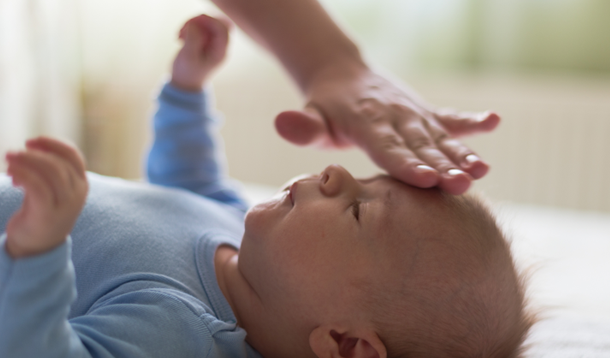
Having worked as a nanny for over 25 years, I have extensive experience caring for children and working with families as a consultant. One of the most important roles in being a caregiver is knowing what to do when a child is sick.
The many children I have taken care of have all, at some point, come home sick. Whether it was an upset tummy, a cold, some kind of virus, or a fever, I've seen it all. A major concern parents have expressed to me when it comes to dealing with illness is how to respond when their little one spikes a fever.
These are the questions I am asked most frequently, and the answers I give:
A fever is very common in babies and small children and usually indicates that the body is fighting off an infection. Some kids will also get a fever if they have a virus and a fever can also creep in when a baby is getting a new a tooth, fighting a cold, or even after having routine vaccinations.
A normal temperature in a child is about 97.5°F, however this can range slightly from child to child. A fever is usually considered to be a temperature over 99.5°F.
A child may have a fever if you notice they:
ALWAYS contact your doctor if your child has other signs of illness as well as a high temperature.
Having a good thermometer on hand is an absolute must and it's a tool that's needed in every home. In the past, I found that using the old mercury style thermometers made taking a temperature difficult, so I never knew if the reading was accurate. I felt uneasy at times as I would second guess if I was doing it correctly. When the new digital style thermometers came to the market, it made my life so much easier. I quickly became a fan of the easy-to-use and easy-to-read Braun ThermoScan Ear Thermometer. I find them to be reliable, easy-to-use, and I value the fact that they have a large screen and light up feature to make reading easier.
One of the most effective ways to take a child’s temperature is through the ear because it reads the body’s core temperature and is highly accurate. To find your child’s temperature, hold her comfortably on your lap and place the thermometer in her ear. Hold the thermometer in place until you hear a beep (usually about 15-seconds), the reading will be generated immediately.
When choosing a thermometer, look for one that's simple to use and will give an accurate reading. Be sure to also ensure it's age-appropriate since not all thermometers are suitable for babies. The Braun thermometers mentioned above and below fit all of this criteria.
If you have any problems taking your child's temperature through the ear, try Braun’s No Touch + Forehead thermometer. This one has amazing technology that allows you to check your child’s temperature at a distance.

You simply point the thermometer at your child, click, and you'll have an accurate reading all while your little one is fast asleep.
Once you've determined that it is indeed a fever, help keep your child comfortable by:
Lots of rest, a few days on the couch with favourite movies, and of course, extra hugs and cuddles are also recommended!
